May 2024 TOK Essay Prompts | IB Experts Guide + Examples

Table of contents
- Writing Metier
The TOK essay prescribed titles for May 2024 are now available. Understanding these TOK essay prompts is essential for IB students aiming for a successful essay. This is why I’m writing this article with expert suggestions from our IB experts for you.
UPD… November 2024 TOK titles released !
I do not want to spend your precious time with a long introduction, so let me go straight to the point!

May 2024 TOK essay titles list
Here’s a breakdown of each title, offering insights and potential approaches.
- Is subjectivity overly celebrated in the arts but unfairly condemned in history? Discuss with reference to the arts and history.
- How can we reconcile the opposing demands for specialization and generalization in the production of knowledge? Discuss with reference to mathematics and one other area of knowledge.
- Nothing is more exciting than fresh ideas, so why are areas of knowledge often so slow to adopt them? Discuss with reference to the human sciences and one other area of knowledge.
- Do we underestimate the challenges of taking knowledge out of its original context and transferring it to a different context? Discuss with reference to two areas of knowledge.
- Do we need custodians of knowledge? Discuss with reference to two areas of knowledge.
- Are we too quick to assume that the most recent evidence is inevitably the strongest? Discuss with reference to the natural sciences and one other area of knowledge.
Get TOK essay assistance from IB experts
At Writing Metier, we understand the intricacies and challenges of crafting a compelling TOK essay . Our team of seasoned IB experts is here to guide you every step of the way.
➡️ Buy Custom TOK Essay Online ⬅️

We will provide you with a tailor-made sample TOK essay that aligns seamlessly with your specific instructions, adheres to the TOK essay rubric , and meets the overarching IB criteria.
Trust in our expertise and let us support you in achieving excellence in your TOK essay writing .
Breakdown of each 2024 May TOK Essay Prompt
Now, let me break each TOK essay title for May 2024 in detail. I’ll also suggest several possible areas of knowledge, ways of knowing and applicable real-life examples to give you some inspiration for these prompts.
Let’s begin!
TITLE 1: Is subjectivity overly celebrated in the arts but unfairly condemned in history? Discuss with reference to the arts and history.
Examine the role of emotion and intuition WOKs in the arts, where personal interpretations often lead to diverse artistic expressions.
For instance, Picasso’s abstract art is open to multiple interpretations. Contrast this with history, where reason and language WOKs play a pivotal role in documenting events.
For example, while historians value primary sources for their objectivity, they often criticize biased accounts.
TITLE 2: How can we reconcile the opposing demands for specialization and generalization in the production of knowledge? Discuss with reference to mathematics and one other area of knowledge.
In mathematics, specialization might refer to mastering a specific theorem, while generalization involves understanding broader mathematical principles.
For instance, Pythagoras’ theorem is specialized, but its application in various real-life scenarios , like architecture, is a generalization. Contrast this with the natural sciences, where specialized knowledge might refer to niche research studies, while general knowledge encompasses broader scientific theories.
TITLE 3: Nothing is more exciting than fresh ideas, so why are areas of knowledge often so slow to adopt them? Discuss with reference to the human sciences and one other area of knowledge.
In human sciences, new psychological theories, for instance, undergo rigorous testing and peer reviews before acceptance. This slow adoption ensures reliability.
Contrast this with ethics, where new moral ideas, like those concerning AI’s rights, face resistance due to cultural and societal values, making their adoption slow.
TITLE 4: Do we underestimate the challenges of taking knowledge out of its original context and transferring it to a different context? Discuss with reference to two areas of knowledge.
In religious knowledge systems, scriptures taken out of their historical context can lead to misinterpretations.
For instance, ancient religious texts might not directly apply to modern ethical dilemmas.
Similarly, in the arts, a piece of art created in a specific cultural context might lose its original meaning when viewed in a different cultural setting.
TITLE 5: Do we need custodians of knowledge? Discuss with reference to two areas of knowledge.
In indigenous knowledge systems, elders often act as custodians, preserving traditions and stories for future generations. Their role ensures that knowledge is not lost over time.
In contrast, academic journals and institutions act as custodians in the natural sciences, ensuring that scientific knowledge is recorded, peer-reviewed, and accessible for future research.
TITLE 6: Are we too quick to assume that the most recent evidence is inevitably the strongest? Discuss with reference to the natural sciences and one other area of knowledge.
In the natural sciences, newer research, such as recent findings on climate change, might be considered more accurate due to advanced technology and methodologies. However, it’s essential to consider the reliability and validity of these findings.
In history, newer historical evidence, like a recently discovered manuscript, might shed light on an event, but its authenticity and context must be verified.
Now let me share some samples written by our expert IB writers at Writing Metier.
May 2024 TOK essay samples
Let’s start with the sample of the TOK essay on May 2024 prompt 2 – How can we reconcile the opposing demands for specialization and generalization in the production of knowledge?

If you need a professionally written TOK essay, feel free to ask for help from our IB experts.
If you have missed it, I also have an article about prior TOK essay titles with suggestions and samples. Make sure to check them out as well!
The year 2023:
- November 2023 TOK essay prompts
- May 2023 TOK essay titles
The year 2022:
- November 2022 TOK essay prompts
- May 2022 ToK essay titles
Previous years’ prompts:
- November 2021 ToK Essay titles
- May 2021 Theory of Knowledge essay prompts
With a clear understanding of these TOK titles, IB students are well-prepared to select a topic and begin their essay.
Keep in mind that the key to a compelling TOK essay is a thorough understanding of the chosen prompt and a structured approach to addressing it.
If you need assistance writing a custom TOK essay , Writing Metier is here to help you out. Contact our support team via email or using a live chat or simply fill out our online order form with details of your IB TOK essay.
➡️ Order an Essay ⬅️

Free topic suggestions
Vasy kafidoff.
Vasyl Kafidoff is a co-founder and CEO at WritingMetier. He is interested in education and how modern technology makes it more accessible. He wants to bring awareness about new learning possibilities as an educational specialist. When Vasy is not working, he’s found behind a drum kit.
Similar posts
November 2023 tok essay prompts explained + samples.
This article is a complete guide to the November 2023 TOK essay prompts, which includes detailed explanations of each prompt along with samples to help students understand them better. It offers practical advice and expert guidance to help students improve their writing skills and succeed in this important assignment. Whether you need help selecting a topic or want to enhance your critical thinking skills, this article provides valuable insights that will help you craft a successful TOK essay.
IB ToK Essay Prompts for November 2022
Every year, students who started IBDP are waiting for IB to share the list of specific prescribed titles for Theory of Knowledge essays. Like in all the previous years, IB opened a list of six topics for TOK essays for the next semester.
ToK Essay Titles November 2021 | Explained + SAMPLES
In this article, we will be talking about the six Theory of knowledge essay topics students enrolled in the IB diploma need to be aware of. Just like every year, this TOK November’s topics vary in different elements, and in this article, we will share descriptions about each topic which the students need to keep in their minds when selecting the essay topic for their diplomas.
30 Different TOK Presentation Topic Ideas to Succeed in IB
Given that the TOK essay's structure and the presentation are unlike others, students can find it challenging to proceed with it. You can only do well on the TOK presentation if you have an excellent idea.
May 2023 TOK Essay Prompts + SAMPLES and Suggestions
Every year, students anxiously wait for the IB to announce the TOK essay topics. So this year is not an exception; IBO has also announced 2023 May titles for IB TOK essay. In this article, we have provided the list of prompts with short directions and suggestions for each topic. Enjoy reading ;)
TOK Exhibition IA Prompts 2023/2024
The list of TOK exhibition prompts for the years 2023/2024. You can easily get through the TOK exhibition with the right understanding of how to work your way through it. All you need is to select the right TOK exhibition IA prompt and have the proper focus with determination to complete it.
We rely on cookies to give you the best experince on our website. By browsing, you agree to it. Read more
EXPLAINED: May 2024 TOK Essay Prescribed Titles
What happened to this post? HackIB has been acquired by MyIBTutor . All content is now available on the MyIBTutor Blog with more exciting IB content to come! Click here to see it for yourself!
Looking for November 2024 Session TOK Essay titles? Click here.
TOK Essay Titles – May 2024 Examination Session
The titles for May 2024 are released! Here they are below:
Make sure to bookmark this page as I explain and provide examples for each of these titles in depth! UPDATE: Title 1, 2, 5 and 6 are now available. Stay tuned for more! For general guidance on how to write a good TOK essay, check out my TOK Essay advice collection .
Is subjectivity overly celebrated in the arts but unfairly condemned in history? Discuss with reference to the arts and history.
How can we reconcile the opposing demands for specialization and generalization in the production of knowledge? Discuss with reference to mathematics and one other area of knowledge.
Nothing is more exciting than fresh ideas, so why are areas of knowledge often so slow to adopt them? Discuss with reference to the human sciences and one other area of knowledge.
Do we underestimate the challenges of taking knowledge out of its original context and transferring it to a different context? Discuss with reference to two areas of knowledge.
Do we need custodians of knowledge? Discuss with reference to two areas of knowledge.
Are we too quick to assume that the most recent evidence is inevitably the strongest? Discuss with reference to the natural sciences and one other area of knowledge.
This title attempts to challenge students on the main school of thought that you learn over the TOK course. The gist of your TOK teaching on both of these AOKs probably boiled down to something like: everything is art and it’s just whatever the artist wants to create, while history is always biased because the winners always write all of history. However, this eliminates much of the nuance in each of these AOKs that are worth exploring. That’s what makes this prompt interesting.
Is subjectivity overly celebrated in the arts? I will be honest, I never thought we really ‘celebrated’ subjectivity. It just, was. Inherently, art is a subjective exercise – you can think about this point a little further. You will find some heated discussion on whether art is subjective or could it be objective on the internet and I won’t delve into that here, because it isn’t the point of this title. The key here is to focus on the EXTENT of subjectivity and is it to the detriment of the area of knowledge itself. Then, we have to consider, whose subjectivity are we talking about: is it the artist’s subjectivity, or the audience’s subjectivity. For example, the Mona Lisa wasn’t that well known when it was first painted. I’m sure the Da Vinci thought it was quite a nice piece, but it seems like we didn’t really celebrate his subjectivity. It wasn’t until a certain audience found it subjectively good, that we accepted it as one of the greatest pieces of art in the world! That is an example of how subjectivity is relevant in the dissemination of artistic knowledge. For a more modern example, what about your favourite YouTuber? Do they truly make what they want? NO! They are often beholden to sponsors, and you – the audience! What you want to see, is what they will make! So it is YOUR subjectivity that drives their decision to produce art, not necessarily purely their subjectivity. Subjectivity by definition is just a person’s opinions, emotions, thoughts. This connects well with the TOK concept of values. What VALUES and WHOSE values are determining what art is created (in a variety of contexts), how art is perceived, and how art changes in its reception over time? These are all good questions to ponder. For more unconventional examples about art, think about how museums choose what art to display, what constitutes good art for prizes like the Nobel Prize for Literature, or why some art is considered more expensive than others? Are there systematic ways to think about our subjectivity and how we apply it to art? Is it really overly celebrating subjectivity or simply a necessity to make sense of the abundance of artistic knowledge in a sea of information today?
History gets a bad rep in the TOK classroom. Students like to trash on History calling it biased and unreliable. In this prompt, I don’t want you to refute these claims, but just think about how they aren’t necessarily catastrophic as we might think. We aren’t denying that biases in history could be problematic. I would be suspicious too, if the only accounts of the Rohingya Genocide came from the Myanmar military. However, the word condemned in the title suggests that we might be too harsh on historians when they get things wrong. We should focus on how the historical method recovers itself from failures in biases from its sources. Yes, it might be biased, but is it better than no history? Furthermore, does subjectivity actually ADD value to the way we produce, and interpret historical knowledge? While I’m sure a completely objective, news story like report of what happened in 1886 would be a historian’s dream, that isn’t the case! No matter how objective we try to be, we colour the events we experience by our own opinions, feelings and emotions. But isn’t that history in itself? In an almost cliched way, history’s subjectivity tells us more about what happened in the past and their beliefs and values more than words could ever say.
In both the historical and artistic discussions, you should focus more on the methodologies of these AOKs and how they achieve their AOK’s purpose. Subjectivity manifests in different ways in these AOKs and their methodology reflects that. In the overt awareness of subjectivity in the Arts, its method to produce knowledge is characteristically defined by subjectivity. In History, the method is to identify the covert influences of subjectivity, then to produce the most truthful knowledge possible. You can see that the goals of these two are different, and hence they deal with subjectivity differently. Don’t fall in the trap of focusing your discussion too much on your examples, but generalise to the patterns of how subjectivity manifest in your AOKs and whether their treatment of it is problematic.
It is crucial, when writing the essay for this prompt, to clearly define in your introduction what specialisation and generalisation means. DO NOT use the dictionary definitions here – since this is a TOK Essay, you want to make a TOK version of specialisation and generalisation, in terms of how these two things differ in the production of knowledge. Clearly defining the two in this way will form a solid foundation for you to have a nuanced discussion on this process of reconciliation between the two. The prompt hints at the competing demands on knowledge of specialisation and generalisation – i.e. you might not be able to produce knowledge in the same way if you were aiming for specialisation versus generalisation. So, this provides a point of contrast for you to choose examples and frame your discussion. Remember, the idea of competing demands is an ASSUMPTION, not an argument posed by the question. You should focus on how your chosen examples demonstrate a way to balance the interests of both and reach a ‘middle-ground’ rather than arguing that specialisation or generalisation are compatible with each other. TLDR: Don’t challenge the assumption.
For the first AOK of Mathematics, you should have encountered many personal examples just from your study of IB Maths. Most of your learning has been on generalisation, and the application of such generalisations. For instance, you learn about Calculus, a general topic within Mathematics, and then apply it in various contexts. Mathematicians love generalisations – that Calculus you learned? Well, the definition of a derivative generalised for all functions could be summarised by the first principles of derivatives function that HL AA students learn. You would have less interaction with specialisation of Mathematical knowledge. In a broader sense, the specific components of mathematics, cannot be separated from the general. You can’t solve calculus problems without the fundamental theorem of calculus. However, you could argue that the fundamental theorem of calculus didn’t need calculus problems to exist. Thus, an interesting dilemma arises in Mathematics – the generalisation could be produced, without a particular need for specialisation, but specialisation often calls for generalisation to first exist.
Looking at the latest mathematics research, you will find that applied mathematics is most common. Rarely do you see people get excited by new discoveries of solutions to elliptical curves, but more do when you tell them a new mathematical model to improve our prediction of the weather. We may place greater value on specialisation of knowledge, because we could see its usefulness more immediately, but, the Area of Knowledge does not require such specialisation to produce knowledge. So, do we encourage people to produce knowledge with the goal of specialisation in mind, or do we tell them to produce whatever theoretical generalised mathematical knowledge they can? Look to how mathematics is applied to Quantitative Finance, Econometrics, and Actuarial Science. They specialise mathematical knowledge and provide for some of the most lucrative careers. Does that speak to our preference and demand for specialised knowledge? But then again, what of the interdependence between generalisation and specialisation? How do we balance the two and how does the methodologies of the AOK contribute to this balancing act?
For the second, complimentary AOK, you could have discussions with all of the AOKs. For the Sciences, you could present a similar argument about needing to have some general theories before you could specialise. The scientific method is essentially one big generalisation process – you take specific observations and you make inferences so that you can generalise about some natural process. However, the knowledge that produces need not be general, it can still be specific. If we take specialisation as the goal, then we could pose narrow hypotheses to test. If we take generalisation as the goal, then we might need multiple of these narrow hypotheses to form a full picture, testing each individual case. Thus, specialisation could lead to specialisation alone, but more often, generalisation is the result of many specialisations.
One last question you might want to consider and attempt to answer in your essay is, do you want to know something about everything or everything about something? The answer to that will depend on your AOK. While we want to know about everything on everything, that is simply not reality. So, what trade offs do we make in each AOK, and how does each AOK decide on what we need to know more on?
You might be able to appreciate how long it takes ideas to actually be implemented in reality by looking at the recent Nobel Prize winners for Economic Sciences. The winner of the 2017 prize was Richard H. Thaler, for his contributions to behavioural economics. He explored the impacts of limited rationality, social preferences and the lack of individual self-control on economic decision making on an individual and market level. He started these findings from the 1980s, but it is only recently, in the 2022 revision of the IB syllabus that Economics students learn about the field of Behavioural economics in any detail! So why is it so?
To some extent, it is hard to criticise things for moving slowly. After all, new discoveries like behavioural economics represents a fundamental paradigm shift towards the way research is conducted in the particular AOK. Often times, fresh ideas are left to “ferment” so that their truthfulness can be tested with time. Nothing is more embarrassing than going down a rabbit hole only to find that your assumptions turned out to be monumentally incorrect. Even if we are making a big shift in light of new ideas towards the way we produce knowledge, doing so takes time! For many years and still now, we rely on strong assumptions of rationality to make economic models function. While the psychology of such behaviours are well researched, applying them to an Economic setting may not be. That is to say, it is important to consider how these new ideas arise, and what effect it has on existing knowledge, and the way we produce future knowledge. New ideas is simply new knowledge, but with the added implication that it has some effect on the existing knowledge within an AOK. It could potentially change how we view current knowledge, or how we conduct research given a particular discovery.
In the AOK of the human sciences, which broadly follows the scientific method, you could drawn some inspiration from the philosopher Thomas Kuhn’s view of scientific progress. He argues that within a period of “normal science” where we make incremental progress under the assumption of an overarching model, but there comes a point where we notice accumulation of imperfections with such a model that leads to new paradigms – new ideas, that fundamentally change how we do science. Then we undergo a sort of scientific revolution, where there are debates and decisions made over what sort of model we need to follow, until everyone eventually accepts the new paradigm and returns to a normal science period so that continual small improvements are made to knowledge, until another paradigm shift happens again. While you are not expected to demonstrate such strong philosophy knowledge within the TOK Essay, it is helpful to consider how each AOK handles such ‘revolutions’. For instance, it is harder to irrefutably find falsities in human sciences given the difficulty in replicability and corroborative studies compared to natural sciences.
As for complimentary AOKs, any would suit here, as each AOK has a very different way to handle new ideas. Many factors influence the way new ideas is accepted. For this title, we need to take the assumption that their acceptance is slow, not argue with it. Instead, you should consider what factors influence this slowness, and how different AOKs have different factors in mind when deciding how to accept new ideas. This relates to the nature of the AOK (what is its purpose) and the methodology guiding knowledge production in them.
Have you ever said something that sounds very weird out of context? That might have just been something silly with no real consequences, but in the realm of knowledge, we need to be careful about the consequences of knowledge taken out of their original context. This article highlights how the context of medical treatment matters a lot! As you can imagine, something that works in one field, doesn’t always apply in a straightforward manner to another. This is why there are whole research teams dedicated to what we call “translational research”. That is, trying to “translate” what you get from something like a lab setting, into actual products, like life-saving medications.
The obvious links to AOKs here are the Natural and Human Sciences. For Natural Sciences, we often start off knowledge production in a lab setting, or in a controlled environment. However, the application of such knowledge is rarely as controlled! So an interesting point to consider is how natural scientists have to account for the fact that their findings won’t ever be used in as perfect a setting as their research. Sure, you might have developed bullet proof wood , but how is that going to work in practically when it comes to mass manufacturing it for the army or the police? This is one of the biggest challenges that natural scientists face. It’s not that we aren’t trying to produce exciting knowledge, but that the application of such knowledge in a practical and appreciable context is often very difficult. Something like the mRNA technology (which recently was awarded a Nobel) took a long time to be developed into actual vaccines. The question then is, do we underestimate this process? Often it depends on the goal of the scientist. If the knowledge producer set out with an idea to commercialise in mind, then they would often consider the practical implications of findings. However, people studying theoretical physics for example, would struggle to immediately find very accessible real life implications. That doesn’t mean the knowledge is worthless, but certainly, the challenges are there.
What about non-scientific disciplines? Recently, I went to an art exhibition that trend Van Gough’s paintings into a 3D digital display. There was a Banksy exhibition that took the original murals he painted on the street, into this museum environment. Does changing the context of how art work is shown, and the manipulation of artistic knowledge change its meaning? What is the goal of transforming art into a different context? There are many reasons. Sometimes, it is to create satire (have a look at the parodies of the Mona Lisa), bringing old art onto a new audience (like VR exhibitions of Da Vinci), or simply making it more accessible to people (by making art works digitally available). The producers of these adapted forms of knowledge take great care in considering how this impacts the meaning of the art in its changed form. When artwork is so subjective, the context of art is often required to understand the artist’s meaning and intention, to ‘interpret’ works accordingly. At the same time, as we know art is quite subjective, is a ‘correct interpretation’ always required? If we are to remain artistic purists, then many of the joys of art could be lost! Imagine if you were admonished for listening to Taylor Swift through Spotify on your AirPods because it isn’t the original uncompressed music file with all the details, and you aren’t listening to it on the exact set of thousand dollar speakers it was created with? It would be ludicrous to assume that artistic knowledge is always going to be disseminated in the same context. Thus, this must be a consideration of artists. Is this consideration more or less difficult for different types of art? How is this consideration different to science considering there is no ‘right’ answer to interpreting art?
When thinking about this title, we aren’t arguing whether it is difficult. I think we all agree it is. However, it is about whether we underestimate just how difficult it is! Center your focus on how each AOK’s methodology highlights the consideration of being able to change contexts, and whether that affects the interpretation of the knowledge in question.
The term ‘custodians of knowledge’ is not something TOK students have likely heard of before, but this concept is relatively simple to understand. If you think positively about it, it could be protectors of knowledge, people who preserve knowledge, keeping it for generations to come – for example, some people might consider the Indigenous Peoples’ in Australia to be custodians of their unique cultural knowledge and what they call dreamtime stories. In this way, they keep culture alive, even if most people nowadays speak English and don’t readily tell their history. However, thought about negatively, it could also mean “gatekeepers’ (pardon the Gen Z language) of knowledge. The idealogical “protection” of knowledge could also be seen as a way to prevent some forms of knowledge from becoming knowledge in the first place. Talk to any university academic, and they will tell you how many times their research papers have been rejected. That’s why there is a bias towards statistically significant results, while research that showed that nothing significant has happened doesn’t often get published. Thus, these two contrasts provide for interesting discussion, particularly when considering how each AOK has different forms of custodians of knowledge and how they “gatekeep” or “protect” knowledge in different ways.
Take the AOK of the arts as an example. The career of artists are laughed upon because it is so hard to “break in” to the fine world of art. Many artists aren’t acclaimed until they are long dead. Perhaps most famously, the Mona Lisa wasn’t very well known until several hundred years after it was made. Thus, artists are often at the mercy of custodians of artistic knowledge like art curators and critics, who decide what merits acknowledgement as knowledge. After all, knowledge is only knowledge when there is consensus it is. And if the big wigs in the art industry doesn’t think it’s worth a mention, your art, however brilliant it seems to you, would not reach the consensus required to be considered knowledge. Of course, there are debates on the necessity of custodians in such a subjective AOK. After all, there were many times I questioned how some “artworks” even made it into the modern art museum when it’s literally splashes of paint on a canvas. I digress. However, there is something to be said about maintaining some form of standard to art. We judge whether some art is good or bad, but not in a very rigorous way. Custodians of knowledge supposedly have a framework to make such judgement in a way which preserves the nature of the AOK, and the knowledge within it. Therefore, discussion about the necessity of the custodians should focus on how they contribute to the purpose of the AOK, and whether it is compatible with the nature and methodologies of the AOK.
To further illustrate what I mean, you could see that Natural Sciences might present a stronger argument to the necessity of such custodians. We implicitly “trust” science, for better or for worse, because we know that there is a level of credibility imbued by the scientific method. It is the custodians’ role to maintain the standard of adherence to the scientific method that keeps this credibility alive. This is why, when flat earthers argue that they can’t see the curvature of the earth from the horizon, that it doesn’t get published in a scientific journal as fact! This is why, when research emerges that denies the existence of climate change, custodians have a responsibility to retract such research . However, at the same time, it also places much pressure on producers of such knowledge to create something worthy in the eyes of custodians. You might have heard of the data manipulation scandal that forced Stanford’s president to resign. Thus, custodians do appear quite important in this AOK, when we value the truthfulness of knowledge so much, but that isn’t without its consequences.
I recommend picking two contrasting AOKs that value much different things when writing the essay. While comparison is not a requirement for the essay, it gives you a more nuanced understanding of the question and thus a more reflective piece. For instance, we have just demonstrated that art is relatively subjective, while the sciences are less so. Thus, this influences the role which custodians need to play in each AOK.
The framework to answering this title for many students will follow a similar structure: an example of when novel evidence was accepted and had groundbreaking impacts, and another example where such evidence was problematic and disputed. Repeat this for the second AOK you choose and you’ll have 4 contrasting examples. This is not the only way to approach this title, but is my personal preference considering the structure I suggest to most students that ensures firstly, you will pass the basic criteria of a TOK Essay, and secondly, you will have a strong foundation to succeed. However, since everyone will have a similar style and collection of examples, it is even more important for this title, that you tease out the meaning and the effect on each area of knowledge, and knowledge in general, that your examples represent.
To demonstrate what I mean, let’s focus on two natural sciences examples. First, consider the case of “Cold Fusion”, a theory that you could supposedly have nuclear fusion at room temperature, discovered and subsequently debunked in 1989. A contrasting example, could be recent Nobel Prize winner of Medicine and Physiology, for the research on mRNA vaccines. Immediately, it is obvious that one shows where recent evidence isn’t the strongest, while the latter shows that it could be. But the focus should be on are we TOO QUICK in assuming so, not whether we should or not. Well, what are the reactions and timelines for each example? While Cold Fusion was met with excitement from the general public for the potential it holds for energy production, I wouldn’t say we ‘assumed’ it to be strong. Looking at the news reports from that time, you can see that there was great anticipation about the discovery, leading to lots of sudden funding and interest to investigate it and replicate it. As for mRNA, that discovery took a long time! First the technology, and the getting it to not appear foreign to the human body was very tricky. Even after it was discovered, we waited quite a while, with many people’s first experience with mRNA to be their COVID 19 vaccine. What you need to draw from these two examples is the methodological similarities and differences which reflect the NATURE of Science, and thus, the purpose of science. You see in both how there is an emphasis on replication which corroborates or falsifies, and only after doing so for a long time do we accept it to be true, otherwise it is debunked. So yes, there are moments where Natural Sciences provides strong compelling evidence that ends up false, there are many hurdles with in the methodology of the Natural Science that prevents us from being TOO QUICK to assume it to be true.
For this prompt, it is too easy to fall into the debate of why something was true or why something was false and tricked the population. This is not the point of the essay. You should avoid talking about the specifics of your examples at length. You need to demonstrate how your examples reflect the wider methodologies of the Natural Sciences (and similarly, for your second AOK) that either encourages or discourages our assumptions that novel evidence is always best. As you can see from my examples above, I focused on how such assumption does not happen too quickly because there are many ways we verify scientific knowledge to be true. I don’t discuss the specifics of the actual science behind Cold Fusion or mRNA as that isn’t required. You are better off focusing on the methodologies behind the AOKs themselves and answering the question.
Some interesting complements to the Natural Science AOK could be History (particularly focusing on revisionism and how historical events could be interpreted differently over time), Mathematics (how could the methodologies differ and are there ‘mistakes’ in Maths), or even Human Sciences (replication is a bit more difficult with that!).
Share this:
20 responses to “explained: may 2024 tok essay prescribed titles”.
Hi, when will you deconstruct #6? Much appreciated.
I just did! Hope it helps.
Thank you so much!
hello! when will you deconstruct #2? would really really appreciate it !!!
Just posted!
Hi when will you deconstruct No. 5? Much appreciated.
Could you please deconstruct no5. ?
Check it out!
Please Please deconstruct 5 ASAP, first draft due in 5 days!!!! Thanks!
I just did! It’s a very interesting title.
Hi, when will you deconstruct #3? Much appreciated.
I have just posted this. Thanks!
Hi, when will you deconstruct #4? Thanks!
Just updated!
Hi, is there more in depth analysis of title 4 coming?
Sorry it took a while, but it’s here now!
I have a question, for PT3, so what will be our possible counterclaim? is it another factor that will make it slow? or find another RLS that show sometimes fresh ideas can be adopted fast ?
I would reread the prescribe title. The title is asking you “why”. So all you need to do is propose different sorts of reasons as to why this slowness occurs. You don’t need to challenge the assumption within the title that it is slow. Accept that it is slow, and propose various ideas for why that is the case according to the properties of your chosen AOK.
Could you explain how you would format number One. Would I only be talking about two examples one for each AOK and what about them? Introduction, aok 1 and aok2 and conclusions
For sure! You should refer to my article on structuring for TOK Essay for more details. In general though, you can approach this prompt with two examples for each AOK, with one example about subjectivity being overly celebrated, and one not in the arts, while for history, it would be one where it is condemned unfairly vs not.
Leave a comment Cancel reply

- Already have a WordPress.com account? Log in now.
- Subscribe Subscribed
- Copy shortlink
- Report this content
- View post in Reader
- Manage subscriptions
- Collapse this bar
Example essays
As part of theory of knowledge (TOK), each student chooses one essay title from six issued by International Baccalaureate®(IB).
The titles change in each examination session.
Upcoming and past questions include:
- “To what extent are areas of knowledge shaped by their past? Consider with reference to two areas of knowledge.”
- “'There is no reason why we cannot link facts and theories across disciplines and create a common groundwork of explanation.' To what extent do you agree with this statement?”
- “There is no such thing as a neutral question. Evaluate this statement with reference to two areas of knowledge.”
- “'The task of history is the discovering of the constant and universal principles of human nature.' To what extent are history and one other area of knowledge successful in this task?”
Further guidance on the TOK essay and exhibition can be found in the IB’s Programme Resource Centre (PRC) .
Materials in the PRC are only available to existing IB World Schools. These materials are free.
There are a number of resources on TOK in the IB Store , which are available to everyone.
Find out how to become an IB World School .


IB TOK Essay examples
Type a search phrase to find the most relevant TOK Essay examples for you
Not sure what to search for? You can always look through our example Theory of Knowledge coursework below for inspiration.

All TOK Essay Examples
Filter exemplars, is replicability necessary in the production of knowledge discuss with reference to two areas of knowledge., are visual representations always helpful in the communication of knowledge discuss with reference to the human sciences and mathematics., want to get full marks for your tok essay allow us to review it for you 🎯, for artists and natural scientists, which is more important: what can be explained or what cannot be explained discuss with reference to the arts and the natural sciences., does it matter if our acquisition of knowledge happens in "bubbles" where some information and voices are excluded discuss with reference to two areas of knowledge., fast track your coursework with mark schemes moderated by ib examiners. upgrade now 🚀, to what extent is the knowledge we produce determined by the methodologies we use discuss with reference to history and one area of knowledge., tok essay: 5. “how can we distinguish between good and bad interpretations discuss with reference to the arts and one other area of knowledge”, if “the mathematician’s patterns, like the painter’s and the poet’s, must be beautiful” (g. h. hardy), how might this impact the production of knowledge discuss with reference to mathematics and the arts., in the acquisition of knowledge, is following experts unquestioningly as dangerous as ignoring them completely discuss with reference to the human sciences and one other area of knowledge., is it problematic that knowledge is so often shaped by the values of those who produce it discuss with reference to any two areas of knowledge., is it always the case that “the world isn’t just the way i is, it is how we understand it – and in understanding something, we bring something to it” (adapted from life of pi by yann martel) discuss with reference to history and the natural sciences., does it matter if our acquisition of knowledge happens in “bubbles” where some information and voices are excluded discuss with reference to two areas of knowledge., is replication necessary in the production of knowledge discuss with reference to two aoks., for artists and natural scientists which is more important: what can be explained or what cannot be explained, are visual representations always useful in communication of knowledge discuss with reference to the human sciences and mathematics., is replicability necessary in the production of knowledge discuss with reference to two area of knowledge, est-il important que notre acquisition des connaissances se fasse dans des « bulles » où certaines informations et certaines voix sont exclues discutez cette question en faisant référence à deux domaines de la connaissance., to what extent is the knowledge we produce determined by the methodologies we use discuss with reference to history and one other area of knowledge., are visual representations always helpful in communicating knowledge discuss with reference to the human sciences and mathematics., is replicability necessary in the production of knowledge, êtes-vous d'accord qu'il est "étonnant que si peu de connaissance puissent nous donner autant de pouvoir" (bertrand russell) - discutez cette question en faisant référence aux sciences naturelles et à un autre domaine de la connaissance, for artists and natural scientists, which is more important: what can be explained or what cannot be explained discuss with reference to the arts and natural science., to what extent is the knowledge weproduce determined by the methodologieswe use, is replicability necessary in the production of knowledge discuss with reference to two areas of knowledge, does it matter if our knowledge acquisition happens in "bubbles" where some information and voices are excluded discuss with reference to two areas of knowledge., 如果我们是在排除某些信息和声音的“信息同温层”里获取知识,这有关系吗请参考两个知识领域展开你的应答。, do you agree that it is “astonishing that so little knowledge can give us so much power” (bertrand russell) discuss with reference to the natural sciences and one other area of knowledge..

- Customer Reviews
- Extended Essays
- IB Internal Assessment
- Theory of Knowledge
- Literature Review
- Dissertations
- Essay Writing
- Research Writing
- Assignment Help
- Capstone Projects
- College Application
- Online Class
35 TOK Exhibition Prompts: The Complete List Updated
by Antony W
January 4, 2024
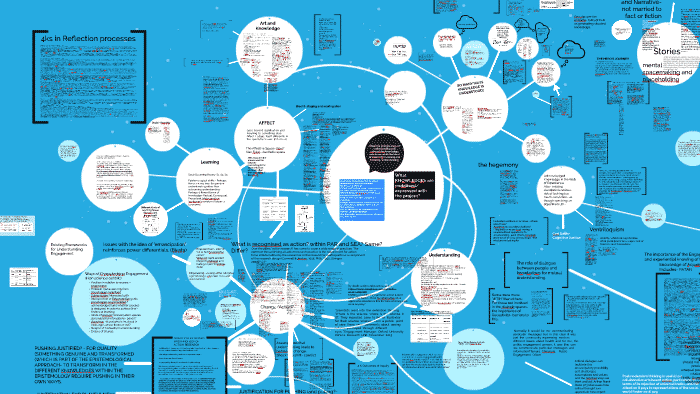
The Theory of Knowledge Exhibition is a new assessment in the TOK syllabus. It replaces the TOK presentation and account for a third of the total marks for the TOK.
Assessed internally and moderated externally, the aim of the assessment is to help students demonstrate how Theory of Knowledge concepts manifest in the real world.
In addition to identifying the 3 objects for the exhibition , students have to choose one IA prompt from the 35 topics and then show the link between the selected objects and the IA prompt in a 950-word commentary .
In this lesson, you’ll learn how to choose the best IA prompt for your TOK exhibition so that you can have an easy time exploring your objects and writing the commentary.
What Are TOK Exhibition Prompts in IA?
The TOK exhibition prompts in IA are open questions a student has to explore in their commentary.
It’s important to note that ToK essay titles are different from IA prompts in the sense that while essay titles are subject to change, IA prompt remains the same each year.
In the context of the Theory of Knowledge exhibition, the IA prompt you choose should link back to the 3 objects and use context of either the core theme or one of the optional themes to how TOK manifests itself in the real world.
The IA prompt you choose will determine the design and methodology you use to use to arrive at your interpretation of the objects or the images of the objects that you choose for the exhibition.
How to Choose The Best IA Prompt for Your TOK Exhibition
According to the TOK exhibition guide, you have to choose only one question from the 35 IA topics. Yet given that 35 means a lot of option, it’s easy to get lost in a world of possibilities .
However, if you apply the right filter to each prompt, you’ll not only understand them better but also find an IA prompt that you can explore within the context of the core theme or one of the optional themes in TOK.
1. Reading Each Prompt
Reading the 35 IA prompts one at a time can be time consuming, but that’s the only best way to know the concept behind each question as it relates to the Theory of Knowledge.
Some aspects will link to just one prompt and some may have a closer link to several of the 35 IA prompts.
2. Picking a Prompt
Once you have a clear concept of the IA prompts, look at them once again and then identify what would work best for you.
It’s best to choose a prompt that interests you or one that has a concept that you already find interesting enough to explore.
If a prompt resonates with your experiences in and outside school, go with it.
3. Relating Your IA Prompt to a Theme
The IB TOK guide requires that you set your exhibition within the context of one of the optional themes or the core theme.
So it’s important to make sure that the IA prompt that you choose is one that you can easily relate to the themes.
You can take this even further and explore the IA prompt in relation to real life situations .
Doing so will go a long way to give you a clear idea about the objects to choose and what your exhibition should be about.
TOK Exhibition Prompts List
1. What counts as knowledge?
2. Are some types of knowledge more useful than others?
3. What features of knowledge have an impact on its reliability?
4. On what grounds might we doubt a claim?
5. What counts as good evidence for a claim?
6. How does the way that we organize or classify knowledge affect what we know?
7. What are the implications of having, or not having, knowledge?
8. To what extent is certainty attainable?
9. Are some types of knowledge less open to interpretation than others?
10. What challenges are raised by the dissemination and/or communication of knowledge?
11. Can new knowledge change established values or beliefs?
12. Is bias inevitable in the production of knowledge?
13. How can we know that current knowledge is an improvement upon past knowledge?
14. Does some knowledge belong only to particular communities of knowers?
15. What constraints are there on the pursuit of knowledge?
16. Should some knowledge not be sought on ethical grounds?
17. Why do we seek knowledge?
18. Are some things unknowable?
19. What counts as a good justification for a claim?
20. What is the relationship between personal experience and knowledge?
21. What is the relationship between knowledge and culture?
22. What role do experts play in influencing our consumption or acquisition of knowledge?
23. How important are material tools in the production or acquisition of knowledge?
24. How might the context in which knowledge is presented influence whether it is accepted or rejected?
25. How can we distinguish between knowledge, belief and opinion?
26. Does our knowledge depend on our interactions with other knowers?
27. Does all knowledge impose ethical obligations on those who know it?
28. To what extent is objectivity possible in the production or acquisition of knowledge?
29. Who owns knowledge?
30. What role does imagination play in producing knowledge about the world?
31. How can we judge when evidence is adequate?
32. What makes a good explanation?
33. How is current knowledge shaped by its historical development?
34. In what ways do our values affect our acquisition of knowledge?
35. In what ways do values affect the production of knowledge?
Frequently Asked Questions
1. are there more than 35 prompts.
No, there are only 35 IA prompts for the exhibition and you cannot add to the list. Your teacher expects you to choose only one prompt from the list and relate it to all the three objects.
2. Can I Change the Wording a Prompt?
The IB TOK guide states explicitly that you should not reword any title (question) provided in the prompt. Use them exactly as prescribed.
3. Where Can I Find the Prompts?
Check page 40 to 41 of the ToK syllabus guide. If you don’t have access to the guide, ask your teacher to share a copy with you. Or you can ask them to share only a list of the IA prompts in a separate document.
4. What’s the Right Way to Link the Prompt to the ToK Course?
The new assessment requires you to explore your Internal Assessment prompt within the context of one of the core themes (language, technology, indigenous societies, religion, and politics) or the core theme (knowledge and the knower).
Therefore, the best way to relate your IA prompt to the TOK course is to think of it in terms of either of the two themes.
5. Can You Help Me Write the Exhibition?
You can hire an exhibition writer on Help for Assessment to complete the project for you. Our experts will help you every step of the way to get the assignment completed in time.
What makes our service different from the other similar companies online is our systematic approach to the assignment.
We search for a suitable prompt for your assignment. We then identify an appropriate theme for the prompt and choose 3 related objects.
Our research process follows where we explore the most relevant information that not only best describes these objects but also demonstrate their real-world context.
Our experts even create an outline suitable for the commentary, making sure we compress each section within the expected word limit. We then use the right format to write a comprehensive commentary that how the TOK exhibition manifests itself in the real world.
3. Can You Complete a ToK Essay for Me?
We've helped many students to complete their ToK essays on time.
So if you're struggling with the same, you can order ToK essay online on our platform and one of our experts will help you complete the task in good time.
About the author
Antony W is a professional writer and coach at Help for Assessment. He spends countless hours every day researching and writing great content filled with expert advice on how to write engaging essays, research papers, and assignments.

ToKTutor - The Worldwide Tutor
TOK ESSAY GUIDES May 2024
Our new and enlarged (3000-3800 words) specialist publications of TOK essay guides are based on the new 2022 Guide Specifications and get you to think about what to do when preparing for your ToK essay.
Essay Guides May 2024
The guides have been developed independently and the content is in no way connected with or endorsed by the International Baccalaureate.
Please DO NOT simply cut and paste details from the guides into your work as plagiarism will be penalised. And remember: we will NOT write essays for you.
Click on the 'Sample Guide' tab to see an example of the kind of guidance that you'll get when you order our ToK Essay Guide for the essays on the Essay topics for May 2024.
If you decide you want guidance to help you with your essay, click on an individual question or the 'BUY NOW' button, making sure that you indicate clearly the exact NUMBER of the Essay Guide you wish to purchase.
May 2024 Titles at a glance
The ToK Essay questions for May 2024 are usually released in September 2023
Click HERE to purchase a Guide when available
Q1. Subjectivity & knowledge in the Arts & History.
Q2. Specialisation & generalisation in knowledge production.
Q3. Fresh ideas & the pursuit of knowledge.
Q4. Challenges of transferring knowledge between contexts.
Q5. Custodians of knowledge.
Q6. Recent evidence & pursuit of knowledge.
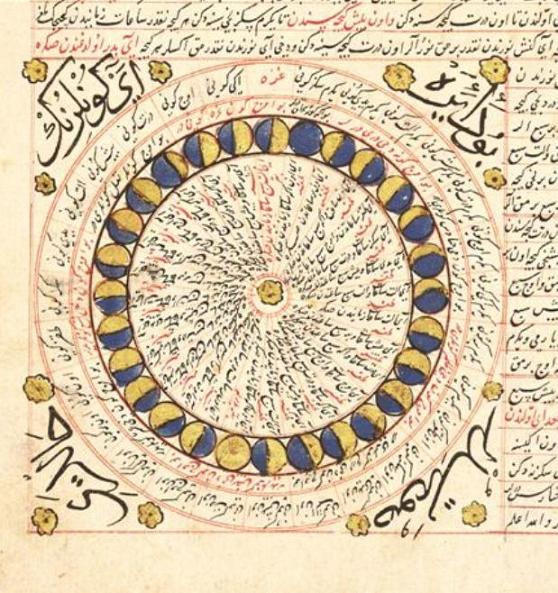
May 2024 Guides
Please CLEARLY indicate the ESSAY NUMBER you require on the PAYPAL form in the 'Enter description' box or send a separate email to: [email protected]
We cannot exchange Guides once we have mailed them to you.
YOUR ESSAY GUIDE WILL BE EMAILED TO YOU ON RECEIPT OF THE £35 FEE
Please allow 24 hrs for delivery owing to global time differences & ensure you check your SPAM folder.
By clicking the 'BUY NOW' button, you acknowledge that you agree to the terms and conditions of use of ToKTutor.net©
ToK Essay Guides May 2024
A more detailed view of the guides will be available below when the new titles are published..., sample guide, title 1: is subjectivity overly celebrated....
Subjectivity, in the context of knowledge...
What the students say...
“The TOK Essay Guide was really informative, but most of all, it helped me to think through the topic for myself. Thanks!”
Arvind, Delhi
Title 2: How can we reconcile...
Any production process...
Title 3: Nothing is more exciting...
‘Fresh’ or new ideas belong...
Title 4: Do we underestimate...
Knowledge is born out of networks...
Title 5: Do we need custodians...
A ‘custodian’ is someone who...
Title 6: Are we too quick...
‘Evidence’ – underlines a key focus...
Quality Guaranteed
Present advice in a more enlarged 3000-3800 words (10+ pages) format.
Link to the specification changes for 2022.
Help you unpack the terms of the question.
Give you a framework to design your knowledge questions and key perspectives.
Point you in the direction of examples to support arguments/counter claims.
Trace links to Core/Optional Themes
Indicate 'Tips on Essay Writing Style'.
Plagiarism Warning
Delivery note.
Our Essay Guides are delivered to you by email, so please ensure you give a valid email address when ordering through PAYPAL's secure site AND please check your junk/spam folder in case the email delivery is filtered out of your inbox.
Please note: make sure you choose your Guide title correctly as we cannot exchange a Guide once it has been delivered.
We aim to send your Guide within 24 hours of PAYPAL's confirmation of your payment.
Please allow for global time differences linked to the UK.
ToK Essay Guides for November 2024?
These are now available!
Terms and Conditions | Privacy Policy | Copyright Notice | Website Usage
Contact: [email protected]
Last Updated: 17 Mar 2024
All Rights Reserved | ToKTutor.net 2010-24

ToKTutor: Extracts of ToK Essay Essay Guides
@ toktutortokessayguides
ToK Essay Prescribed Titles (Nov 2024)
It’s a moment to anticipate twice a year and now that the new titles have been published, it’s time to reflect on what they mean and how to shape a response to them.
In the posts that follow, you’ll find our brief thoughts on the new titles - each post is a summary of a larger, 3000-3800 word guide . Based on the recent specification changes for the new ToK Curriculum (2022), the Guides include extended links to the new Core/Optional Themes and a gratuitous section, ‘Tips for essay writing’.
See our sister blog @ https://toktutorposts.tumblr.com/ to search for examples that might help with your ToK Essay or Exhibition work...
Please note: these ideas are our own reflection and have been developed independently and the content is in no way connected with or endorsed by the International Baccalaureate.
For more information, see our website: https;//www.toktutor.net
ToK Essay Nov 2024 Title 1: Responsibilities for pursuing knowledge.
Clarifying the terms of the Q: Let’s first consider the idea that ‘our’ refers to experts within AOKs who work to acquire knowledge. Consider that an expert has to have a level of experience, qualifications and training to do this work. (F1) If you now factor in the demands of different AOKs, you’ll see that an expert’s job to acquire knowledge will always vary. But does it follow that the ‘responsibilities’ of different experts within AOKs will also vary?…
Developing the Q: Experts have a responsibility to engage in thorough and systematic research when acquiring knowledge. This involves utilising reputable sources, critically evaluating information and ensuring the validity and reliability of data.(F3/4) Rigorous research is essential to establish a solid foundation of accurate knowledge and to avoid misinformation or bias…
Theme Connections: Technological limitations often requires substantial investment in research infrastructure and collaborative partnerships to leverage resources efficiently. From a historical perspective, consider the challenge faced by archaeologists…
Knowledge Questions : What kinds of responsibilities to experts have when working to acquire knowledge? Do non-experts have the same or different responsibilities?
Perspectives
History : Eric Foner exemplifies responsibility in knowledge acquisition through his meticulous research methods and commitment to scholarly integrity. His works, such as Reconstruction: America’s Unfinished Revolution, 1863-1877 , are widely acclaimed for their rigorous examination of historical sources, critical analysis of primary documents and nuanced interpretations of complex historical events…
ToK Essay Title Nov 2024 Title 2: Ingenuity & its limits in knowledge production.
Clarifying the terms of the Q: There are two parts to the title. The first part clearly invites an exploration of the nature of ‘ingenuity’ or ‘creative’ input within the knowledge production process. What does this ‘engine room’ of each AOK look like and how does it work? The second part of the title asks you to explore the limitations of such ingenuity…
Developing the Q: In his book Blink , Malcolm Gladwell elaborates on how the power of creative intuition, rapid unconscious reasoning, both helps and hinders the production of knowledge. Gladwell’s exposition of the case of the fake kouros exhibited at the J. Paul Getty Museum in California in 1986, is a perfect illustration of ingenuity at work and its limitations …
Theme Connections: Politics (OT2) can significantly influence ingenuity in knowledge production by shaping funding priorities, research agendas and access to resources. For example, government policies may prioritise certain research areas over others…
Knowledge Questions : How does ingenuity contribute to the development of innovative technologies that advance mathematical research and knowledge production? In what ways can ingenuity overcome limitations in data collection and analysis to drive discoveries and insights in various AOKs? ?
Maths: Sophie Germain overcame significant barriers as a woman in the male-dominated field of mathematics. She demonstrated remarkable ingenuity in her investigations of Fermat’s Last Theorem, applying innovative methods and insights to make significant progress towards its proof...
ToK Essay Nov 2024 Title 3: AOKs cutting off ties with the past.
Clarifying the terms of the Q: From this point of view, the two parts of the title are linked by the concept of time. ‘Fresh’ or new ideas belong to the present time. They trigger change or progress in knowledge. The speed of the change can be slow or fast; evolutionary or revolutionary. (F6) On the one hand, sometimes change is slow because it takes time to evaluate critically the relevant aspects of those ideas in the pursuit of knowledge…
Developing the Q: Knowledge experts may benefit from severing ties with the past when new paradigms or theories emerge within their fields. By embracing novel ideas, they can stay at the forefront of their disciplines. (F6) In the field of physics, the emergence of quantum mechanics in the early 20th century revolutionised our understanding of the fundamental nature of particles and energy…
Theme connections : Current specialised language helps knowers to articulate complex theories, share insights and engage in critical discourse, fostering intellectual growth and interdisciplinary collaboration. For instance, scientific journals publish research findings in various languages, allowing researchers worldwide to access and build upon each other’s work…
Knowledge Questions : What are the advantages and disadvantages of medical practitioners adopting new treatment methodologies compared to traditional approaches? How do advancements in technology benefit the field of education?
H Sciences : Margaret Mead, an influential anthropologist, challenged prevailing notions about cultural determinism and gender roles in her revolutionary work, such as Coming of Age in Samoa and Sex and Temperament in Three Primitive Societies . Her research broke with the past by highlighting the variability of cultural practices and challenging the notion of fixed gender roles, contributing to a more nuanced understanding of human behaviour and culture…
ToK Essay Nov 2024 Title 4: Similarities & differences between hypothesis & speculation.
Clarifying the terms of the Q: At first glance, ‘hypothesis’ and ‘speculation’ seem vastly different. ‘Hypothesis’ is linked to formal statistics, in which experts establish correlation/causation relationships between variables. ‘Speculation’ implies ungrounded assertions, perhaps based on gut feelings or leaps of logic…
Developing the Q: Before moving on, here’s a working sense of ‘speculation’ in the context of an expert community’s pursuit of knowledge. Exploratory Inquiry: Speculation in this sense refers to the process of exploring potential ideas, hypotheses or interpretations that may not yet be fully supported by empirical evidence or rigorous analysis. It involves considering various possibilities and potential explanations as a way of generating new insights…
Theme connections: Indigenous knowledge systems play a vital role in distinguishing between hypothesis making and speculation by emphasising holistic understandings of the interconnectedness of humans, nature and the cosmos, providing valuable intuitions into complex phenomena. They guide hypothesis formulation based on lived experiences and empirical observations. (OT4)…
Knowledge Questions : To what extent does the distinction between hypothesis and speculation vary across different AOKs, and how does this variation impact the reliability and validity of knowledge claims? How do cultural and historical, influence the criteria used to differentiate between hypothesis and speculation in diverse AOKs?
H Sciences : In Max Weber’s work, one hypothesis might be his theory of rationalisation, which posits that modern societies undergo a process of rationalisation, where traditional forms of authority, belief systems and social norms are replaced by rational, bureaucratic structures…
ToK Essay Nov 2024 Title 5: Anomalies in knowledge production.
Clarifying the terms of the Q: In the pursuit of knowledge through different AOKs, an ‘anomaly’ is not the same as an ‘error’ or ‘mistake’. An ‘anomaly’ typically refers to something that deviates from the expected or established patterns, norms or theories within a particular AOK. Anomalies can manifest in various forms, such as unexpected experimental results, contradictory observations or unexplained phenomena…
Developing the Q: Firstly, let’s look at how they help the process when experts in AOKs take the time to integrate them into the knowledge community…Anomalies challenge established theories and paradigms, prompting researchers to explore new hypotheses and avenues of inquiry. This stimulates innovation and can lead to breakthrough discoveries that expand our understanding of the world…
Theme connections : In scientific research, the use of standardised terminology and language conventions allows researchers to communicate findings and discuss anomalies across different disciplines. Language provides a framework for conceptualising and interpreting anomalies...(OT2)
Knowledge Questions : How do anomalies challenge established knowledge and contribute to the advancement of knowledge within AOKs? What strategies do experts employ to identify and interpret anomalies and how do these shape our knowledge?
History : Leopold von Ranke’s approach to history was characterised by a strong emphasis on objectivity and factual accuracy, which sometimes led him to overlook or downplay anomalies that did not fit neatly into his narrative of historical events. For example, in his treatment of religious and cultural diversity in medieval Europe, von Ranke tended to present a homogeneous view of medieval society...
ToK Essay Nov 2024 Title 6: Knowledge & adopting different lenses.
Clarifying the terms of the Q: The word ‘lens’ immediately centres this title in the idea of ‘perspectives’ and ‘perspective taking’ in the pursuit of knowledge. (F1) The judgment about what is ‘gained’ can be narrowed down to exploring the advantages and disadvantages of each perspective when experts produce or acquire knowledge within an AOK…Firstly, even if an artist isn’t necessarily qualified or trained as an scientist and vice versa , one needs to have empathy to see things from the other’s perspective…
Developing the Q: Incorporating scientific methodologies can sharpen observation and accuracy in an artist’s pursuit of knowledge. (F4) This precision can lead to more detailed and technically proficient artwork. For example, the Dutch painter Johannes Vermeer is known for his meticulous attention to detail and use of optical devices such as the camera obscura to achieve precise perspective and lighting effects…
Theme Connections: Artists who draw upon indigenous perspectives can enrich their artistic practice with insights into scientific concepts such as biodiversity and conservation. However, religious doctrines that reject evolutionary theory or promote creationist beliefs may discourage artists from exploring scientific themes in their work (OT3)…
Knowledge Questions : How does adopting an artistic perspective enhance the communication of complex scientific concepts to the general public? In what ways can an artistic lens foster interdisciplinary collaboration and innovation in scientific research?
Arts : Anna Atkins is widely regarded as the first person to publish a book illustrated with photographic images. In the mid-19th century, she used the cyanotype printing process, a photographic technique popular among scientists at the time, to create detailed images of algae and other botanical specimens. Her book, Photographs of British Algae: Cyanotype Impressions (1843), documented hundreds of different algae species…

Unpacking the 2024 November TOK Titles: A Comprehensive IB Solved Guide

The November 2024 IB Theory of Knowledge (TOK) Essay Titles are out!
Let's be honest – tackling the TOK essay can be a daunting task. With so many ideas, concepts and topics at our disposal and a myriad of ideas swirling around, it's easy to feel overwhelmed at the outset.
That's where we come in.
In this article, we'll delve into each title and offer some strategic advice on how to approach them.
General Tips to Unpacking a Title
When we first encounter a prompt, we want to think in terms of perspectives and counter-perspectives (formerly known as claims and counterclaims). This framework allows for a structured essay, exploring the title through the lens of two chosen Areas of Knowledge (AOKs) and weaving in different arguments. While the ultimate conclusion you draw may often reside somewhere between these extremes or on a conditional basis (e.g. perspective 1 is correct in certain circumstances, while perspective 2 is a better approach in other), starting with opposing arguments can facilitate the development of a more nuanced exploration and argument.
So let's get to it – here is everything you need to know about the November 2024 TOK Essay titles:
Title 1: Does our responsibility to acquire knowledge vary according to the area of knowledge? Discuss with reference to history and one other area of knowledge.
Recommended AOKs: History (Mandatory) and Natural Sciences/The Arts/Human Sciences
This title prompts an assessment of whether we have different levels of responsibility to acquire knowledge across different AOKs. While you are open to argue against the title directly, suggesting that the responsibility is the same across AOKs, this would be unwise. It would be better to reflect on each AOK and perhaps present one perspective in support of the responsibility and one perspective against it, drawing a conclusion on which argument is stronger in each AOK.
Also consider the difference between the acquisition and production of knowledge – perhaps we have a broader responsibility to produce new knowledge in some areas of knowledge but not necessarily to acquire it as individual knowers.
Some perspectives you may consider:
Perspective: We have a responsibility to acquire knowledge to ensure that we construct an accurate record of the past. It is our responsibility to know our History and learn from the past.
Counter-Perspective: Historical knowledge is limited by subjectivity and collective memory, hence it is not essential to acquire knowledge of our past to build a successful future.
Perspective: We have a responsibility to acquire artistic knowledge to understand cultures and societies.
Counter-Perspective: The acquisition of knowledge in the Arts is for aesthetic purposes and enjoyment, not the fulfilment of a responsibility.
Natural Sciences/Human Sciences
Perspective: We have a responsibility to acquire new scientific knowledge for the continual development of mankind.
Counter-Perspective: Understanding how the world/humans work is not necessary knowledge for knowers to acquire.
Title 2: In the production of knowledge, is ingenuity always needed but never enough? Discuss with reference to mathematics and one other area of knowledge.
Recommended AOKs: Mathematics (Mandatory) and Natural Sciences/The Arts/Human Sciences
This is a super interesting title – ensure you define 'ingenuity' from the outset. The essay almost structures itself – your first paragraph in each AOK can consider how/whether ingenuity is 'always needed', exploring how this plays out in each AOK, while the second paragraph can explore whether or not it is 'never enough'.
Some ideas you may consider:
Paradigm Shifts – To revolutionise an AOK, often ingenuity is needed to enact a paradigm shift (a new way of thinking which changes the entire knowledge structure of an AOK) and to ensure progress.
Creativity – Creative thinking is important not only for AOKs such as the Arts, but even in Mathematics and the Sciences. Discovering innovative ways of devising experiments or utilising clever analogies to explain incredibly complex concepts is integral to these AOKs.
Structure – Ingenuity is only valuable within a framework for knowledge production, whether this be an artistic process or the scientific method.
Title 3: How might it benefit an area of knowledge to sever ties with its past? Discuss with reference to two areas of knowledge.
Recommended AOKs: History, Natural Sciences, The Arts and Human Sciences
The 'How' of this title restricts the scope to discussing different 'benefits' rather than a standard 'perspective-counter' analysis. It will also be important to define exactly what 'severing ties' involves – does this mean completely ignoring all past knowledge or simply becoming less attached to existing ways of thinking?
Some ideas for this title:
Fresh Ideas and Paradigm Shifts – By severing ties, you open up the possibility of acquiring knowledge which can overhaul an entire AOK, drastically accelerating progress.
Bias – By severing past ties, knowers can free themselves of the biases of their predecessors.
Innovation – Since existing frameworks of thinking often lead to similar conclusions, you can expand the possibilities of new knowledge by severing past ties.
However, you may interestingly conclude that these benefits are only reaped when ties to the past are severed to an extent, as it may be detrimental to an AOK to entirely negate past knowledge.
Title 4: To what extent do you agree that there is no significant difference between hypothesis and speculation? Discuss with reference to the human sciences and one other area of knowledge.
Recommended AOKs: Human Sciences and History/Natural Sciences
This prompt is very focused on your definitions. I would suggest defining these terms distinctly and precisely from the outset. The primary question which this title is asking is whether hypotheses are mere "speculation" or "guesses", or if there is a significant difference.
Also, if selecting the Human and Natural Sciences, please ensure that your perspectives aren't repetitious and highlight the differences between these AOKs.
Development – Speculation and hypothesis differ in the fact that the development of a hypothesis generally requires significant prior research and an understanding of existing knowledge
Experimentation – Hypotheses are developed purposefully and then empirical experimentation are conducted to provide evidence either in support or against them
Emotion – Speculation tends to come from 'feelings' or 'impressions', whereas the development of a hypothesis is far more methodical
Title 5: In the production of knowledge, are we too quick to dismiss anomalies? Discuss with reference to two areas of knowledge.
Recommended AOKs: Human Sciences/History/Natural Sciences
This title allows you to reflect on whether or not we dismiss 'anomalies' (a key term to be defined) too quickly when producing knowledge.
Paradigm Shift – Anomalies are often the prompt for a paradigm shift in the sciences, causing us to challenge existing beliefs and ideas
Exceptions – Often rather than investigating anomalies further and considering an overhaul of existing knowledge, anomalies are dismissed as 'exceptions' to the rule, rather than a justification to question the rule itself
Generalisation – There is often a focus on generating 'general' rules and theories which can lead anomalies to be dismissed (think of the Human Sciences – how often do we produce a rule about human behaviour but ignore those who behave contrary to the rule)
Title 6: In the pursuit of knowledge, what is gained by the artist adopting the lens of the scientist and the scientist adopting the lens of the artist? Discuss with reference to the arts and the natural sciences.
Recommended AOKs: The Arts and the Natural Sciences
This title requires you to define the 'lens' of each of these AOKs from the outset. It will be better to define them quite opposingly – the scientist is more methodical, experimental and structured, whilst the artist is more free-flowing and creative. You will then be able to take these attributes and argue which elements would be better across the two disciplines.
Creativity – Scientists can benefit from the creativity of artists when developing innovative ways of experimenting, presenting results and constructing abstract theories
Structure – Artists can often benefit from a methodical approach to constructing art, particularly when aiming to convey a specific message or purpose through their art
Flexibility – Artists are often quite flexible when constructing an artwork, always willing to change and adapt to their free-flowing thoughts, an attribute which is highly beneficial for scientists who at times may become rigid in their thinking and fixed to pre-existing scientific beliefs.
And that's it - our comprehensive guide to the 2024 November TOK Titles! If you're still racking your brain as to how to begin the writing process for your TOK essay, why not check out our post on The Complete IB TOK Essay Guide . Or check out one of our Grade A Exemplar TOK Essays ! Or better yet, if you are looking for some more personal assistance with your IB TOK Essay, click below to reach out to us and we can work with you through the entire writing process, from title selection to the best structure for success!
- Internal Assessment Guides
Recent Posts
The Secrets to Success in the Theory of Knowledge (TOK) Essay
Unpacking the 2023 November TOK Titles: A Comprehensive IB Solved Guide
- [email protected]
- Get 21% OFF . Use the code: FIRST21

2024 November TOK Essay Prompts | How to Write Them?
Hello, budding scholars! As an experienced IB writer, I’ve often faced the intellectual hardships of the Theory of Knowledge essays. Today, I’m excited to share insights on tackling the November 2024 TOK essay prompts. Let’s look at all prompts with a keen eye on the latest updates and my wealth of experience in the IB DP curriculum .
What Are 2024 November TOK Essay Titles?
A TOK essay prompt or title is a carefully formulated question that challenges you to think deeply about the nature of knowledge and how we come to understand and interpret the world around us. As an experienced IB writer, I’ve found these prompts essential in developing critical thinking and encouraging students to evaluate different perspectives and methods of acquiring knowledge.
From my experience, each TOK essay prompt is structured to investigate specific areas of knowledge (AOKs) and ways of knowing (WOKs), requiring you to draw on real-life situations and personal insights. It helps develop a nuanced understanding and enhances your ability to apply theoretical knowledge practically.
So, the IB has rolled out thought-provoking prompts for November 2024. Each question invites you to examine knowledge through various AOKs. Here’s a quick overview:
- Does our responsibility to acquire knowledge vary according to the area of knowledge? Discuss with reference to history and one other area of knowledge.
- In the production of knowledge, is ingenuity always needed but never enough? Discuss with reference to mathematics and one other area of knowledge.
- How might it benefit an area of knowledge to sever ties with its past? Discuss with reference to two areas of knowledge.
- To what extent do you agree that there is no significant difference between hypothesis and speculation? Discuss with reference to the human sciences and one other area of knowledge.
- In the production of knowledge, are we too quick to dismiss anomalies? Discuss with reference to two areas of knowledge.
- In the pursuit of knowledge, what is gained by the artist adopting the lens of the scientist and the scientist adopting the lens of the artist? Discuss with reference to the arts and the natural sciences.
Remember, according to general IB criteria, a well-written TOK essay should not merely summarize existing knowledge but engage with the prompt critically and creatively. It’s about questioning our assumptions and considering various viewpoints, which can sometimes be contradictory or challenging. The good news is that you don’t have to do it alone because you can always turn to our experienced IB writers for help with your TOK essay .
2024 November TOK Essay Prompts in Details
For those entering the world of epistemology , these essays are your playground for intellectual investigation. In keeping with the general IB criteria, understanding and responding accurately to your essay prompts is crucial. This year’s titles challenge you to think critically about knowledge itself, from its acquisition to its production. So, let’s look at what each entails and how you can excel in writing them.
🎓✍️ Get Top Marks on Your TOK Essay with Our Professional Writing Service! ✍️🎓 Are you struggling with your Theory of Knowledge essay? Look no further than our expert writing service! Our experienced writers have a deep understanding of the TOK criteria and have helped countless students achieve top grades on their essays. 🌟 We guarantee a unique and personalized approach to your TOK essay, and our writers are all human, ensuring that your essay will not be generated by a machine like CHAT-GPT. Additionally, our service is 100% confidential and risk-free, so you can trust us with your academic success. Don't let a poor TOK essay hold you back from achieving your full potential! Contact our team today and let us help you reach new heights in your academic journey. Get started with our TOK Essay Writing Service now! 💡📚🔝
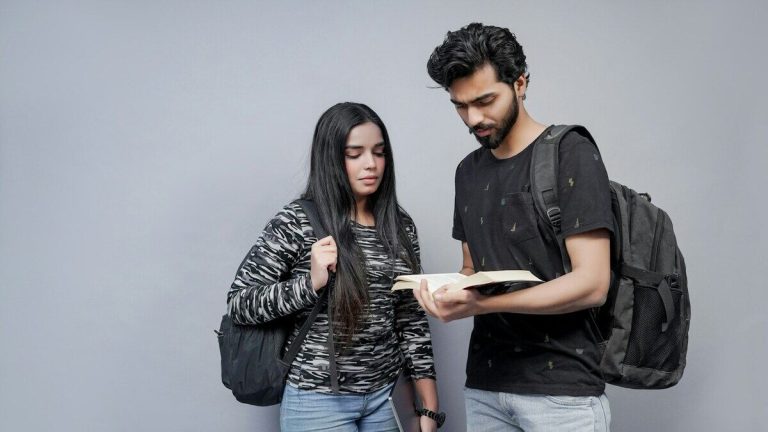
You might be interested:
- How to Write a TOK Journal Assignment: The Complete Guide
- ToK Journal Writing Tips: A Comprehensive Guide
- TOK Exhibition Word Count: A Quick and Convenient Guide
- How to Write TOK Essay in One Week?
- AOKs in IB TOK: Mastering the Easiest and Hardest Areas
- Unpacking the Aims of a TOK Journal: A Guide to Enhance Your Thinking
- IB TOK Essay Structure in Detail
- How To Structure A Theory Of Knowledge Exhibition
1. Does our responsibility to acquire knowledge vary according to the area of knowledge?
Discuss with reference to history and one other area of knowledge.
As I know, the rigorous validation of historical sources often contrasts sharply with the more subjective, philosophical debates in ethics. This difference fundamentally affects how knowledge is validated and challenges in these fields:
- AOKs . History, Ethics
- WOKs . Memory, Reason
- RLS . Consider the study of historical events like the Holocaust versus ethical debates on euthanasia.
In my experience, contrasting these AOKs helps illuminate the varying responsibilities. Historians rely heavily on documented evidence (memory), while ethicists often argue based on moral reasoning. Discuss how these responsibilities shape our understanding and the implications of neglecting them.
2. In the production of knowledge, is ingenuity always needed but never enough?
Discuss with reference to mathematics and one other area of knowledge.
From my observations, the burst of creativity in arts often precedes formal recognition and understanding, similar to the initial skepticism that meets new mathematical theories:
- AOKs . Mathematics, Arts
- WOKs . Imagination, Intuition
- RLS . Mathematical theories that revolutionized understanding, like Einstein’s theory of relativity, versus innovative art movements such as Surrealism.
Highlight the necessity of ingenuity in pushing boundaries and limits without rigorous validation in mathematics or emotional resonance in arts. Use examples to discuss how creativity initiates ideas but requires more to be entirely accepted and integrated into the knowledge framework.
3. How might it benefit an area of knowledge to sever ties with its past?
Discuss with reference to two areas of knowledge.
Indeed, breaking from past knowledge allows for a radical rethinking of established norms, which is essential in fields that rely heavily on empirical evidence or doctrinal faith:
- AOKs . Natural Sciences, Religious Knowledge Systems
- WOKs . Sense perception, Faith
- RLS . The shift from Newtonian to Quantum Physics versus reforms in religious practices.
Argue the benefits of evolving beyond outdated theories in science due to new evidence or the transformative effects of reinterpreting religious texts. From my experience, showcasing how this severance can lead to progress or upheaval helps create a compelling argument.
4. To what extent do you agree that there is no significant difference between hypothesis and speculation?
Discuss with reference to the human sciences and one other area of knowledge.
Speculation can spark the initial inquiry in both areas, yet in natural sciences, the empirical testing phase significantly distances it from mere speculation, enhancing the reliability of the knowledge produced:
- AOKs . Human Sciences, Natural Sciences
- WOKs . Reason, Imagination
- RLS . The development of psychological theories versus hypotheses in climate science.
Discuss how both fields use hypotheses but differentiate with the rigor and methodology of testing in natural sciences compared to often speculative frameworks in human sciences. Use specific examples to illustrate how speculation can lead to a hypothesis but remains distinct in its validation.
5. In the production of knowledge, are we too quick to dismiss anomalies?
Anomalies test the robustness of our existing theories and act as catalysts for deeper inquiry and understanding, particularly in dynamic fields such as ethics and environmental science.
- AOKs . Ethics, Environmental Science
- WOKs . Emotion, Observation
- RLS . Unusual ethical dilemmas in medical ethics versus unexpected climate phenomena.
Discuss the importance of anomalies in challenging existing beliefs and leading to new insights. From my experience, evaluating how these anomalies are often sidelined but can drive significant paradigm shifts provides a rich discussion point.
6. In the pursuit of knowledge, what is gained by the artist adopting the lens of the scientist and the scientist adopting the lens of the artist?
Discuss with reference to the arts and the natural sciences.
This interdisciplinary approach not only enriches the individual fields but also fosters a holistic view of knowledge that challenges and expands the boundaries of traditional disciplinary methods:
- AOKs . Arts, Natural Sciences
- WOKs . Imagination, Empirical Evidence
- RLS . Use of scientific techniques in digital art creation versus the influence of artistic creativity in scientific visualization and communication.
Consider how integrating methodologies enhances understanding and innovation in both fields. From my experience, this cross-pollination fosters a deeper engagement with material realities in art and a more imaginative approach to scientific research.
How to Choose Your TOK Essay Prompt?
Choosing the correct prompt is not just about fulfilling an academic requirement; it’s about engaging deeply with a question that resonates with your areas of strength. Here are some tried and tested tips to help you make this critical decision.

Consider Your Interests
In my opinion, interest in the topic is crucial. TOK essays dig deep into the nature of knowledge across various disciplines. Select a prompt that aligns with your interests or subjects you are passionate about. This natural curiosity will fuel your research and writing process, making it more enjoyable and engaging. As I know, students who choose topics they are interested in typically write more compelling essays.
Evaluate Your Understanding
From my experience, your familiarity with the concepts each prompt discusses is critical. Before deciding, assess your understanding of the AOKs and WOKs involved in each question. According to general IB criteria, an excellent TOK essay meets a strict word count and clearly describes the relevant AOKs and WOKs. It might be the right choice if a prompt requires stronger reasoning skills and you excel in analytical thinking.
Reflect on the Scope of Critical Thinking
A good TOK essay prompt should allow you to showcase your ability to think critically and evaluate knowledge claims from multiple perspectives. Choose a prompt that offers scope for analysis and argumentation. From my experience, prompts that initially seem complex often provide the most fertile ground for a rich, detailed knowledge investigation.
Consider the Availability of Resources
Another practical aspect to consider is the availability of resources. Some topics may be more challenging to research due to limited materials or complex theoretical frameworks. As I know, access to a good range of sources eases essay writing stress and enriches your final TOK submission .
Discuss with Your Teacher
Finally, don’t underestimate the value of a good brainstorming session with your TOK teacher. Their insight into your strengths and weaknesses can be invaluable in selecting the most suitable prompt. From my experience, teachers often provide perspectives or resources you may not have considered, which can make all the difference in your writing process.
In conclusion, each TOK essay prompt for November 2024 presents a unique opportunity to refine your understanding of knowledge. I advise approaching your essay with curiosity and rigor and ensuring that your arguments are well-supported and articulated. The process of writing your TOK essay is as crucial as the final piece itself. Good luck, and remember that our experts at IBStudentHelp.com are always by your side!

Valerie Green
Valerie Green is a dedicated educator who spends her time helping high school and college students succeed. She writes articles and guides for various online education projects, providing students with the tools they need to excel in their studies. Friendly and approachable, she is committed to making a difference in the lives of students.

When to Submit Extended Essay? IB EE Deadlines
Managing the deadlines for your IB extended essay can seem daunting, but with the right guidance, it’s completely manageable. This article breaks down the critical deadlines you need to know in order to successfully plan and execute your extended essay.

When to Submit TOK Essay? Deadlines
Understanding when to submit your TOK essay is crucial for success, as meeting these deadlines ensures you have ample time for revisions and reduces last-minute stress. This article offers a comprehensive guide on TOK essay deadlines, providing key insights from a seasoned IB writer.

What Are the IB IA Deadlines?
In this comprehensive guide, we discuss the essential dates and strategies for managing your submissions effectively. Understanding these deadlines is vital when preparing for the May or November exam sessions. From planning early and using digital tools to track your progress to communicating with teachers and handling unforeseen challenges, this article provides you with all the insights and tips you need to master the timing of your IAs.

In this comprehensive guide, an experienced IB writer shares essential insights and strategies specifically tailored to mastering TOK essay prompts. From analyzing the nuances of knowledge acquisition in different areas of knowledge to considering the dynamic interplay between artistic creativity and scientific methodology, this article offers a deep immersion into each prompt.

How Long Is IB EE? Minimum and Maximum Word Count
Balancing word count limits requires careful planning and consideration of every word you write. In this guide, I’ll share strategies and insights from years of mentoring IB students to help you master the art of word count management in your extended essay.

TOK Essay Word Count. Min & Max
In this guide, we discuss the crucial parameters set by the International Baccalaureate for minimum and maximum word counts. Through the insights of an experienced IB writer, this article offers practical strategies for staying within these limits while improving the quality and depth of your essay.
© 2024 I Bstudenthelp.com. This website is owned and operated by Udeepi OU Harju maakond, Tallinn, Lasnamäe linnaosa, Sepapaja tn 6, 15551. Disclaimer : Services we provide are only to assist the buyer like a guideline to complete any kind of writing assignment. Privacy Policy Terms and Conditions Cookie Policy Revision Policy Refund Policy

The ToK Essay
Are you looking for ToK Essay help ? TokToday resources to help you to write a top scoring ToK Essay:
Nov 24 Guidance Notes are published: Click here to purchase.

In it’s first year of publication the ToKToday e-book Write the ToK Essay in 6 Easy Steps has been used by hundreds of ToK students in many countries. Amongst the positive feedback that we received from many students includes this:
“ So glad I bought this book, it showed me what to do at every stage, I’d of been totally lost without it “
Agustin, June 23, Argentina
Loads of other ToK Essay Resources:
In addition to those above we have also have lots and lots of other resources to help you with your ToK Essay. These include:
Dedicated ToK Essay Video Playlist.
A dedicated ToK Essay video Playlist (incl. 66+ videos) looking beyond the prompts at issues such as how to structure the ToK Essay, examples of RLS to include in the essay, what the examiners are actually looking for, and the 3 most frequent mistakes that students make.
Detailed blog posts on The ToK Essay
Many blogposts on the ToK Essay dealing with a range of issues including:
- How to structure your ToK Essay.
- How to develop knowledge arguments to answer the prompt.
- Analysis of the Examiner’s Reports.
- How to write evaluations & implications of knowledge arguments.
- Communities Pre-Med Medical Resident Audiology Dental Optometry Pharmacy Physical Therapy Podiatry Psychology Rehab Sci Veterinary
- What's new Trending New posts Latest activity
- Support Account Help Confidential Advising
- Vision, Values and Policies

- PreMed Communities
- Pre-Medical (MD)
- 2024-2025 MD Medical School-Specific Discussions
2024-2025 UTMB (Sealy)
- Thread starter wysdoc
- Start date Apr 10, 2024
Plain-spoken Texan
- Apr 10, 2024

University of Texas Medical Branch-Galveston Interview Feedback
Wavin' Howdy 🤠
- Wednesday at 2:15 PM
Grew up in the area (not going to this school, but was accepted last cycle), happy to answer any questions about the area.
- Wednesday at 2:50 PM
Secondary Essays
- Wednesday at 2:51 PM
Adiemus said: Secondary Essays Please respond to two of the six essay prompts below. 1. Describe a time when you learned in a team. How will this experience help you as a medical student? 2. Describe a time when you made a mistake. How did you acknowledge it, respond, and remediate the situation? 3. Scientific inquiry is important for being a physician. Define a time when you engaged in scientific inquiry and how do you think it would help you be a better physician? 4. What attributes do you look for in your physician(s)? Which of these attributes do you need to develop? How will you develop them? 5. Do you have any work experience and if so, how do you think those skills will help you as a physician? 6. John Sealy School of Medicine at the University of Texas Medical Branch serves patients throughout Texas, focusing on Galveston County and the Gulf Coast Region. Are there particular characteristics of our school and/or the Galveston area in terms of location, history, or other attributes that make you especially interested in matriculating here? @wysdoc Click to expand...
- Wednesday at 2:52 PM
wysdoc said: Can you supply the character limits please? Click to expand...
Similar threads
- Apr 13, 2024
- Apr 12, 2024
- This site uses cookies to help personalize content, tailor your experience and to keep you logged in if you register. By continuing to use this site, you are consenting to our use of cookies and terms of service . Accept Learn more…
More From Forbes
5 strategies to unlock your winning college essay.
- Share to Facebook
- Share to Twitter
- Share to Linkedin
CAMBRIDGE, MASSACHUSETTS - JUNE 29: People walk through the gate on Harvard Yard at the Harvard ... [+] University campus on June 29, 2023 in Cambridge, Massachusetts. The U.S. Supreme Court ruled that race-conscious admission policies used by Harvard and the University of North Carolina violate the Constitution, bringing an end to affirmative action in higher education. (Photo by Scott Eisen/Getty Images)
The college application season is upon us, and high school students everywhere are staring down at one of the most daunting tasks: the college essay. As someone who has guided countless applicants through the admissions process and reviewed admissions essays on an undergraduate admissions committee, I've pinpointed the essential ingredient to a differentiated candidacy—the core of your college admissions X-factor .
The essential ingredient to your college admissions X-factor is your intellectual vitality. Intellectual vitality is your passion for learning and curiosity. By demonstrating and conveying this passion, you can transform an average essay into a compelling narrative that boosts your chances of getting accepted to your top schools. Here are five dynamic strategies to achieve that goal.
Unleash Your Authentic Voice
Admissions officers sift through thousands of essays every year. What stops them in their tracks? An authentic voice that leaps off the page. Forget trying to guess what the admissions committee wants to hear. Focus on being true to yourself. Share your unique perspective, your passions, and your values. Authenticity resonates deeply with application reviewers, making your essay memorable and impactful. You need not have experienced trauma or tragedy to create a strong narrative. You can write about what you know—intellectually or personally—to convey your enthusiasm, creativity, and leadership. Intellectual vitality shines through when you write with personalized reflection about what lights you up.
Weave A Captivating Story
Everyone loves a good story, and your essay is the perfect place to tell yours. The Common Application personal statement has seven choices of prompts to ground the structure for your narrative. The most compelling stories are often about the smallest moments in life, whether it’s shopping at Costco or about why you wear socks that have holes. Think of the Common Application personal statement as a window into your soul rather than a dry list of your achievements or your overly broad event-based life story. Use vivid anecdotes to bring your experiences to life. A well-told story can showcase your growth, highlight your character, and illustrate how you've overcome challenges. Intellectual vitality often emerges in these narratives, revealing how your curiosity and proactive approach to learning have driven you to explore and innovate.
Reflect And Reveal Insights
It's not just about what you've done—it's about what you've learned along the way. When you are writing about a specific event, you can use the STAR framework—situation, task, action, and result (your learning). Focus most of your writing space on the “R” part of this framework to dive deeply into your experiences and reflect on how they've shaped your aspirations and identity.
Best High-Yield Savings Accounts Of 2024
Best 5% interest savings accounts of 2024.
The most insightful college-specific supplement essays demonstrate depth of thought, and the ability to connect past experiences with your future life in college and beyond. Reflecting on your intellectual journey signals maturity and a readiness to embrace the college experience. It shows admissions officers that you engage deeply with your studies and are eager to contribute to the academic community.
Highlight Your Contributions—But Don’t Brag
Whether it's a special talent, an unusual hobby, or a unique perspective, showcasing what you can bring to the college environment can make a significant impact. Recognize that the hard work behind the accomplishment is what colleges are interested in learning more about—not retelling about the accomplishment itself. (Honors and activities can be conveyed in another section of the application.) Walk us through the journey to your summit; don’t just take us to the peak and expect us know how you earned it.
Intellectual vitality can be demonstrated through your proactive approach to solving problems, starting new projects, or leading initiatives that reflect your passion for learning and growth. These experiences often have a place in the college-specific supplement essays. They ground the reasons why you want to study in your major and at the particular college.
Perfect Your Prose
Great writing is essential. Anyone can use AI or a thesaurus to assist with an essay, but AI cannot write your story in the way that you tell it. Admissions officers don’t give out extra credit for choosing the longest words with the most amount of syllables.
The best essays have clear, coherent language and are free of errors. The story is clearly and specifically told. After drafting, take the time to revise and polish your writing. Seek feedback from teachers, mentors, or trusted friends, but ensure the final piece is unmistakably yours. A well-crafted essay showcases your diligence and attention to detail—qualities that admissions officers highly value. Intellectual vitality is also reflected in your writing process, showing your commitment to excellence and your enthusiasm for presenting your best self.
Crafting a standout college essay is about presenting your true self in an engaging, reflective, and polished manner while showcasing your intellectual vitality. Happy writing.

- Editorial Standards
- Reprints & Permissions
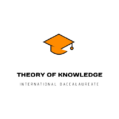
[email protected]
+919878797000.
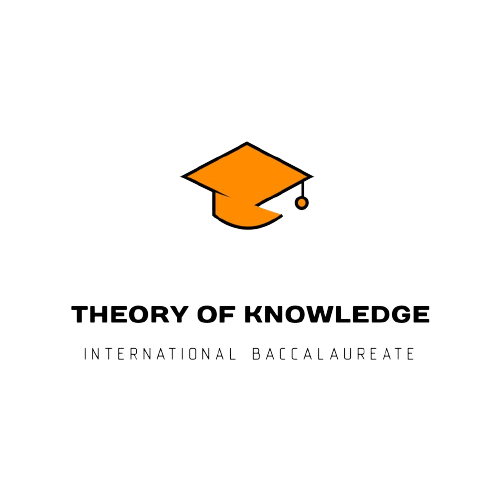
THEORY OF KNOWLEDGE 2023
A comprehensive guide.

THEORY OF KNOWLEDGE
Tok curriculum.
Discover the TOK curriculum and its components, including knowledge questions, areas of knowledge, and ways of knowing.
TOK Essay Tips
Learn essential tips and techniques for writing an impressive TOK essay that effectively addresses knowledge issues and receives high marks.
TOK Presentation
Get guidance on how to deliver an engaging TOK presentation that effectively communicates.
TOK Resources
Resources to explore TOK concepts and expand your knowledge: books, articles, and websites.
Lorem Porem
Lorem porem ipsum, 25 years of experience.
Successfully Project Finished.
Years of experience with proud
Colleagues & counting more daily
TOK ESSAY TITLES 2024
Tok essay title 1 may 2024.
Is subjectivity overly celebrated in the arts but unfairly condemned in history? Discuss with reference to the arts and history.
TOK ESSAY TITLE 2 MAY 2024
How can we reconcile the opposing demands for specialization and generalization in the production of knowledge? Discuss with reference to mathematics and one other area of knowledge.
TOK ESSAY TITLE 3 MAY 2024
Nothing is more exciting than fresh ideas, so why are areas of knowledge often so slow to adopt them? Discuss with reference to the human sciences and one other area of knowledge.
TOK ESSAY TITLE 4 MAY 2024
Do we underestimate the challenges of taking knowledge out of its original context and transferring it to a different context? Discuss with reference to two areas of knowledge.
TOK ESSAY TITLE 5 MAY 2024
Do we need custodians of knowledge? Discuss with reference to two areas of knowledge.
TOK ESSAY TITLE 6 MAY 2024
Are we too quick to assume that the most recent evidence is inevitably the strongest? Discuss with reference to the natural sciences and one other area of knowledge.
Choose from three different TOK course structures
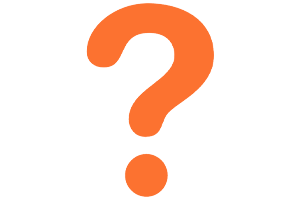
Big Question Framework
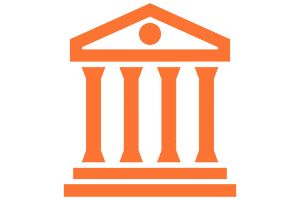
Classic TOK Lessons
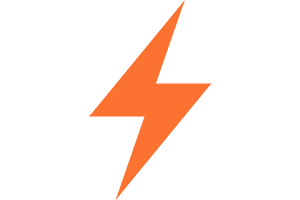
Disruptive Ideas
Take advantage of three classroom-ready courses for TOK, exclusively available to faculty members. Each course provides meticulously designed and structured lessons, supported by clear and measurable learning objectives. Packed with media-rich resources and inspired by current real-world situations and ideas, these courses will save you considerable time. Begin downloading and delivering them now.
Apply TOK ideas and concepts to the real world
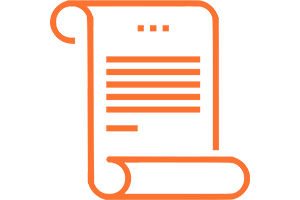
Monthly Newsletter
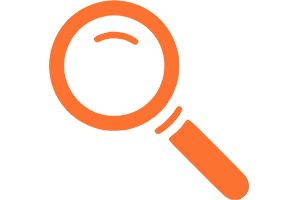
Investigating Issues
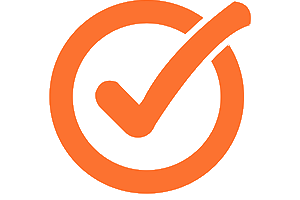
12 Key TOK Concepts
Our resources aim to assist students in exploring and comprehending the most significant current events while understanding how TOK concepts manifest in the real world. Our exclusive monthly TOK newsletter, Investigating Issues, along with the 12 Key Concepts, will aid you and your entire DP faculty in developing critical thinking skills and connecting learning to news issues, debates, and controversies. Subscribe to our complimentary newsletter here to stay updated.
Master the TOK assessment tasks
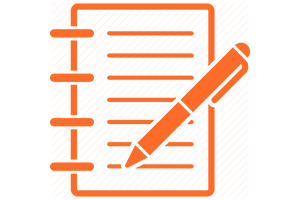
TOK Essay Support Pack
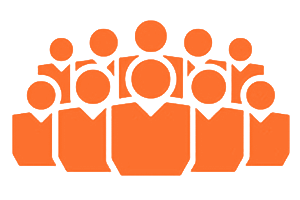
Exhibition Support Pack
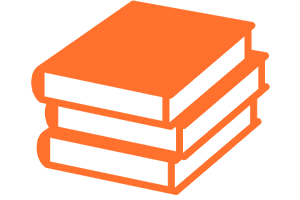
TOK Assessment Lessons
Our assessment packs, available in both English and Spanish, are specifically designed for student use. They provide a clear understanding of the assessment criteria for the TOK essay and exhibition, assisting students in creating exceptional final assessment products. With the TOK assessment lessons, teachers can effectively target and enhance the necessary skills, enabling students to approach the assessment tasks with confidence and achieve success.
Get your whole DP faculty onboard
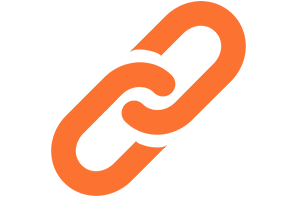
DP Integration Tool
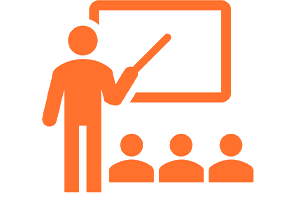
TOK Mini Lessons
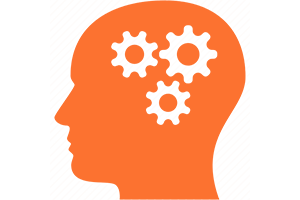
Knowledge Heros
What distinguishes us from other sites and textbooks for TOK is our commitment to catering to ALL faculty members. Our resources are designed with this in mind. The Integration Tool facilitates seamless connections between subjects and TOK concepts, while incorporating real-world events. Mini-lessons offer concise and ready-to-use classroom materials, and Knowledge Heroes empower teachers to draw inspiration from influential figures across various academic disciplines.
Prepare your pre-DP students for TOK

Thinking for Yourself
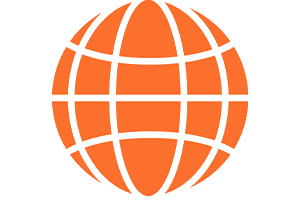
Middle Year Newsletter
We provide two pre-DP courses, namely “Thinking for Yourself” and “Worldviews,” which aim to foster critical thinking, stimulate debates, and introduce students to the concepts they will encounter in TOK. Additionally, our middle years newsletter assists students in going beyond surface-level understanding by encouraging them to delve deeper into the latest events and real-world issues.
Get trained-up for TOK

Our training programs in TOK and critical thinking are tailored to meet the needs of both specialized teachers and regular faculty members. We have collaborated with schools worldwide, assisting them in incorporating engaging, relevant, and effective TOK and critical thinking practices throughout their curriculum. Additionally, we provide free and premium webinars on TOK, along with a comprehensive collection of videos available on our YouTube channel for you to explore.
Explore the course

The Core Theme
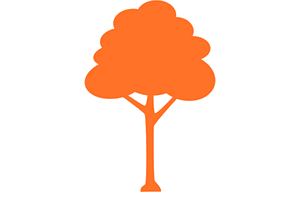
Optional Theme
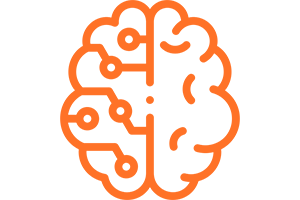
Areas of Knowledge
Explore our extensive range of free course materials covering every aspect of the TOK course. Delve into the core theme, “knowledge & the knower,” as well as the optional themes like indigenous societies, language, politics, religion, and technology. Additionally, explore the various areas of knowledge such as the arts, history, human sciences, mathematics, and natural sciences. As a faculty member of our site, you’ll have exclusive access to our exploration point documents, providing in-depth insights into each component of TOK.
Download free samples
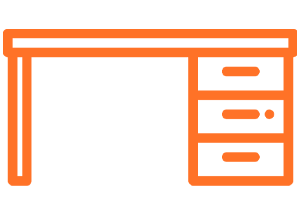
Classroom Ready TOK Lessons
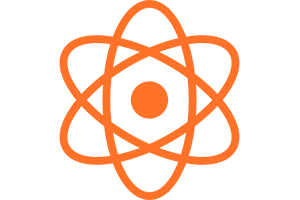
TOK World Resources
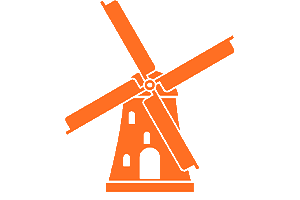
Real World Resources
Gain access to a wide array of free sample materials that showcase our approach and the type of resources available to site members for delivering the TOK course. Explore our comprehensive selection of classroom-ready lessons, organized into three distinct courses. Take a look at our TOK-world resources, designed to empower students to take ownership of their TOK journey. Additionally, discover how our real-world resources establish meaningful connections between learning and current events and issues. Download these samples to get a firsthand experience of our offerings.
Testimonials
Rahul kapoor.
Studying TOK has been an enlightening journey. It has challenged my perspectives, sharpened my critical thinking skills, and expanded my understanding of knowledge. I highly recommend this course to all IB students.
United States
Emily johnson.
TOK has been an incredibly thought-provoking course for me. It has pushed me to question everything and explore different ways of knowing. This course has truly transformed the way I approach learning and understanding the world.
María Santos
Studying TOK has opened my mind to the diverse ways in which knowledge is constructed and evaluated. It has challenged my preconceived notions and deepened my appreciation for the complexity of knowledge.
Ishita Sharma
TOK has made me realise the power of questioning and the importance of having an open mind. It has encouraged me to explore different viewpoints and engage in meaningful discussions.
Request a Callback?
Learn more from, frequently asked questions.
Theory of Knowledge (TOK) is an interdisciplinary course offered as part of the International Baccalaureate (IB) Diploma Programme. It delves into the nature of knowledge, how it is acquired, and the ways in which it is justified. TOK fosters critical thinking, reflection, and exploration of different ways of knowing and areas of knowledge.
TOK offers invaluable skills for intellectual and personal growth. It enhances critical thinking, nurtures an appreciation for diverse perspectives, and encourages curiosity. By engaging with TOK, students develop abilities that are highly beneficial for higher education, such as analyzing arguments, evaluating evidence, and constructing well-reasoned viewpoints.
TOK is assessed through an externally moderated essay and an oral presentation. The TOK essay requires students to critically analyze a prescribed title or develop a self-chosen title related to TOK. The oral presentation provides an opportunity for students to explore a real-life situation from a TOK perspective and engage in a thoughtful discussion.
TOK equips students with critical thinking skills that can be applied to everyday life. It enables individuals to navigate complex issues, evaluate sources of information, and make informed decisions. The skills and perspectives cultivated in TOK are highly transferable, benefiting students in university studies, career paths, and active engagement with the world.
Absolutely! TOK emphasizes the importance of effective communication in conveying ideas and arguments. It encourages students to express themselves clearly, develop coherent arguments, and support them with evidence. Through the oral presentation component and essay writing, TOK hones students’ communication skills, enabling them to articulate their thoughts with precision and clarity.

IMAGES
VIDEO
COMMENTS
The TOK essay prescribed titles for May 2024 are now available. Understanding these TOK essay prompts is essential for IB students aiming for a successful essay. This is why I'm writing this article with expert suggestions from our IB experts for you. UPD…. November 2024 TOK titles released!
The titles for May 2024 are released! Here they are below: Make sure to bookmark this page as I explain and provide examples for each of these titles in depth! UPDATE: Title 1, 2, 5 and 6 are now available. Stay tuned for more! For general guidance on how to write a good TOK essay, check out my TOK Essay advice collection.
TOK Essay Title #6. (May 2024) Are we too quick to assume that the most recent evidence is inevitably the strongest? Discuss with reference to the natural sciences and one other area of knowledge. This is another of the easiest TOK Essay Titles from May 2024. One of the strangest things is that it is very similar to Theory of Knowledge Essay ...
Below are the Theory of Knowledge Essay prescribed titles for the May 2024 session.. The video analysis of these titles is available in the member's area--which you can watch using a free trial.(Just click the "subscribe" tab at the top of this page).Click here to watch it now (just login first).. Our just updated TOK Essay Video Course (11 helpful videos) is ready for you as well.
As the May 2024 International Baccalaureate (IB) assessment approaches, students preparing for the Theory of Knowledge (TOK) Essay are faced with intriguing and thought-provoking prompts. These essay topics delve into the essence of knowledge, challenging students to explore various facets of how we acquire, interpret, and utilize information.
I breakdown TOK Essay #6 and give you examples, research, and great ideas that will help you stand out from everyone else! The title is: Are we too quick to ...
Get a head start on the May 2024 TOK essay titles with our detailed guide. This article offers succinct descriptions and targeted tips for writing each essay. It's designed to assist IB students in understanding complex topics and developing persuasive essays. Learn how to approach these titles with confidence and articulate your thoughts ...
Click here to download sample conclusions for each TOK Essay Title from May 2024! Each page below will give you a downloadable guide for the Theory of Knowledge May 2024 titles that will get you started with strategy, research, and evidence! If you need more help with your TOK Essay, click here to get in touch with me and send me your essay!
Get the full 6000+ words guide here: https://toklifeline.com/downloads/title-6-may-2024/
I made a free outline just for this prompt! Get it for free below! This theory of knowledge essay title is challenging...until it's not. Let me help you with...
Further guidance on the TOK essay and exhibition can be found in the IB's Programme Resource Centre (PRC). ... Bogotá 2024 The IB is excited to welcome educators to the IB IberoAmerica Conference, Bogotá 2024 held from 13-15 June 2024. Register now Ask a question Submit questions about how to become an IB World School or enquire about our ...
See what past students did and make your TOK Essay perfect by learning from examiner commented examples! Exemplars. Review. Login. JOIN FOR FREE. ... May 2025 May 2024 November 2023 May 2023 November 2022 May 2022 November 2021 May 2021 November 2020 May 2020 Other. Apply. Filter exemplars. IB College. Category. Subject. Type a subject.
The TOK Exhibition (also sometimes called the TOK IA) counts for one-third of your marks in the course. As you know, you need to choose one of the 35 IA prompts to base your exhibition on.. This is a challenging task and I've created a blog post explaining how you to get all of the marks on these here).But, first you'll need to choose ONE prompt from this list.
It's important to note that ToK essay titles are different from IA prompts in the sense that while essay titles are subject to change, IA prompt remains the same each year.. In the context of the Theory of Knowledge exhibition, the IA prompt you choose should link back to the 3 objects and use context of either the core theme or one of the optional themes to how TOK manifests itself in the ...
ToK Essay Nov 24. We have many resources designed to help you to write a great ToK Essay Nov 24. ToKToday resources have been used to great success by hundreds of students in the last 3 exam sessions, these resources have been updated specifically for the Nov 2024 titles, and in response to the latest ToK Examiners reports. 2 / 6.
The ToK Essay questions for May 2024 are usually released in September 2023. Q1. Subjectivity & knowledge in the Arts & History. Q2. Specialisation & generalisation in knowledge production. Q3. Fresh ideas & the pursuit of knowledge. Q4. Challenges of transferring knowledge between contexts.
Title 6 of the May 2023 TOK essay prompt draws attention to the methods and tools used in the TOK knowledge framework. The essay explores the extent to which the observations collected and evaluated through the use of methodologies impact the nature of newly produced knowledge.
ToK Essay Nov 2024 Title 1: Responsibilities for pursuing knowledge. Clarifying the terms of the Q: Let's first consider the idea that 'our' refers to experts within AOKs who work to acquire knowledge. Consider that an expert has to have a level of experience, qualifications and training to do this work. (F1) If you now factor in the ...
The November 2024 IB Theory of Knowledge (TOK) Essay Titles are out! This comprehensive IB Solved guide will unpack strategic approaches to the new titles! ... This title prompts an assessment of whether we have different levels of responsibility to acquire knowledge across different AOKs. While you are open to argue against the title directly ...
2024 November TOK Essay Prompts in Details. For those entering the world of epistemology, these essays are your playground for intellectual investigation. In keeping with the general IB criteria, understanding and responding accurately to your essay prompts is crucial. This year's titles challenge you to think critically about knowledge ...
A dedicated ToK Essay video Playlist (incl. 66+ videos) looking beyond the prompts at issues such as how to structure the ToK Essay, examples of RLS to include in the essay, what the examiners are actually looking for, and the 3 most frequent mistakes that students make. Detailed blog posts on The ToK Essay. Many blogposts on the ToK Essay ...
12,803. Reaction score. 21,650. Apr 10, 2024. #1. 2024-2025 UTMB (Sealy) Secondary Essay Prompts: (most have changed since last year) Please respond to two of the six essay prompts below. (300 words each) 1. Describe a time when you learned in a team.
The best essays have clear, coherent language and are free of errors. The story is clearly and specifically told. After drafting, take the time to revise and polish your writing. Seek feedback ...
Below are the Theory of Knowledge Essay prescribed titles for the November 2024 session. The video analysis of these titles is ready for you in the member's area --which you can watch using a free trial. (Just click the "subscribe" tab at the top of this page). Our updated TOK Essay Video Course (11 helpful videos) is ready for you as well .
TOK Essay Tips Learn essential tips and techniques for writing an impressive TOK essay that effectively addresses knowledge issues and receives high marks. TOK. ... TOK ESSAY TITLE 6 MAY 2024 Are we too quick to assume that the most recent evidence is inevitably the strongest? Discuss with reference to the natural sciences and one other area of ...
Event Details. This event will take place in-person at Great Kills Library. Join us for an hour of writing! Come work on poetry, short stories, personal essays, or any other form of writing you'd like. Prompts will be provided for inspiration and time to share will be included in the hour. All skill levels are welcome! No registration is required.